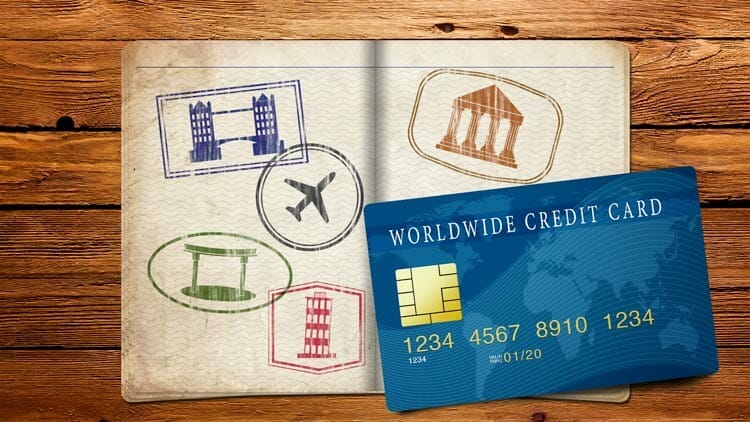
Applying for a travel rewards card is an excellent way to travel more without spending too much money. However, most travel credit cards require perfect credit scores, which can be challenging if your credit score could be better. Fortunately, there are still some travel credit cards you may qualify for, even with a bad credit score. Here are three options to consider and additional information to help you determine whether to apply for a travel credit card.
Travel Rewards Credit Cards Explained
Travel rewards credit cards are designed to help you earn rewards you can use for travel expenses such as flights, hotels, rental cars, and more. Like other credit cards, the more you use them, the more rewards you can earn in the form of points or miles.
What sets travel rewards credit cards apart is their value. They tend to offer more substantial introductory offers for new cardholders, often worth $1,000 or more. Additionally, they offer a higher return on everyday and travel purchases, and the rewards you accumulate can be applied to future travel expenses. Some travel cards also provide exclusive benefits, such as airport lounge access or statement credits toward Global Entry or TSA Precheck, to enhance your overall travel experience.
However, there is a downside to these cards. Travel rewards credit cards have some of the highest APRs on the market, and if you don’t pay your bill in full and on time, you’ll owe interest and late fees, which can hurt your credit score and negate the value of any rewards earned.
What Credit Score is Needed for a Travel Rewards Credit Card?
Credit scores are categorized based on the FICO scales as follows:
- Exceptional: 800+
- Very Good: 740-799
- Sound: 670-739
- Fair: 580-669
- Poor: <580
Because travel rewards cards are so desirable, you’ll typically need a good to exceptional credit score to qualify for most. You’ll also need to have a good credit history. Getting approved won’t be easy if you’re new to credit and don’t have at least a year of credit history to back up your score.
If your credit score falls in the fair or poor range, you’ll likely be denied the top travel cards. For example, the popular Chase Sapphire Preferred® Card has no official credit score requirement, but most applicants with a score of at least 740 will get approved.
The more prestigious the travel card, or the higher the annual fee, the better your credit score will need to be. For example, The Platinum Card® from American Express is one of the most luxurious travel cards available, with a $695 annual fee. You’ll likely need an exceptional credit score to qualify for this card.
Top Credit Cards for Travelers with Low Credit Scores
If your credit score isn’t quite up to par yet, some great rewards cards can serve as starter options. As you improve your credit history by making timely payments, you can eventually qualify for some of the big-name cards mentioned above.
Best for Fair Credit: Capital One QuicksilverOne Cash Rewards Credit Card
Designed for applicants with average credit, the Capital One QuicksilverOne Cash Rewards Credit Card comes with a low $39 annual fee. This could be an excellent card if your credit score falls somewhere in the 600s range.
Although not branded as a “travel” credit card, the Capital One QuicksilverOne offers many of the same travel benefits provided by competing cards. Cardholders earn 5% cash back on hotels and rental cars booked through the Capital One travel portal and 1.5% on all other eligible purchases, with no limit to how many rewards they can earn.
All rewards can be redeemed as a statement credit, check, or direct deposit. Capital One QuicksilverOne cardholders can redeem rewards for flights, hotels, or rental cars through the issuer’s online travel portal at 1 cent each. This is a great way to offset travel costs, even as a “cash back card.”
Another key benefit of the Capital One QuicksilverOne Cash Rewards Credit Card is no foreign transaction fees. If you’re traveling internationally, this card waives surcharges and fees for paying in a different currency.
Best for Poor Credit: Discover it® Secured
If you have bad credit — or a score of under 580 — the Discover it® Secured is worthwhile as you work to build your credit history. To open the card, you must put down a fully refundable security deposit between $200 and $2,500. The amount you put down will determine the total credit limit available to you, and if you ever decide to shut your account, you’ll get your deposit back.
Secured credit cards typically come with high annual fees or lack rewards-earning potential. Fortunately, the Discover it® Secured comes with no annual fee and offers 2% cash back at gas stations and restaurants up to the first $1,000 spent per quarter.
You can save the cash back you earn toward future travel purchases. Additionally, you can use your Discover it® Secured abroad, as the card also waives foreign transaction fees.
Best for Students: Chase Freedom® Student Credit Card
College students can get a travel rewards card with the Chase Freedom® Student Credit Card. Even with no credit history, Chase offers easy approval odds, and the card is intended explicitly for university students.
Cardholders earn an unlimited 1% cash back on all purchases. Although not the best earning rate, it’s better than not making any rewards. Other benefits include a $20 reasonable standing compensation after each account anniversary for up to five years and automatic credit limit increases after five monthly payments on time within ten months from account opening.
Plus, Chase offers some of the best travel credit cards on the market. If you develop a strong foundation with this issuer now, you can apply for better cards in a year or two.
